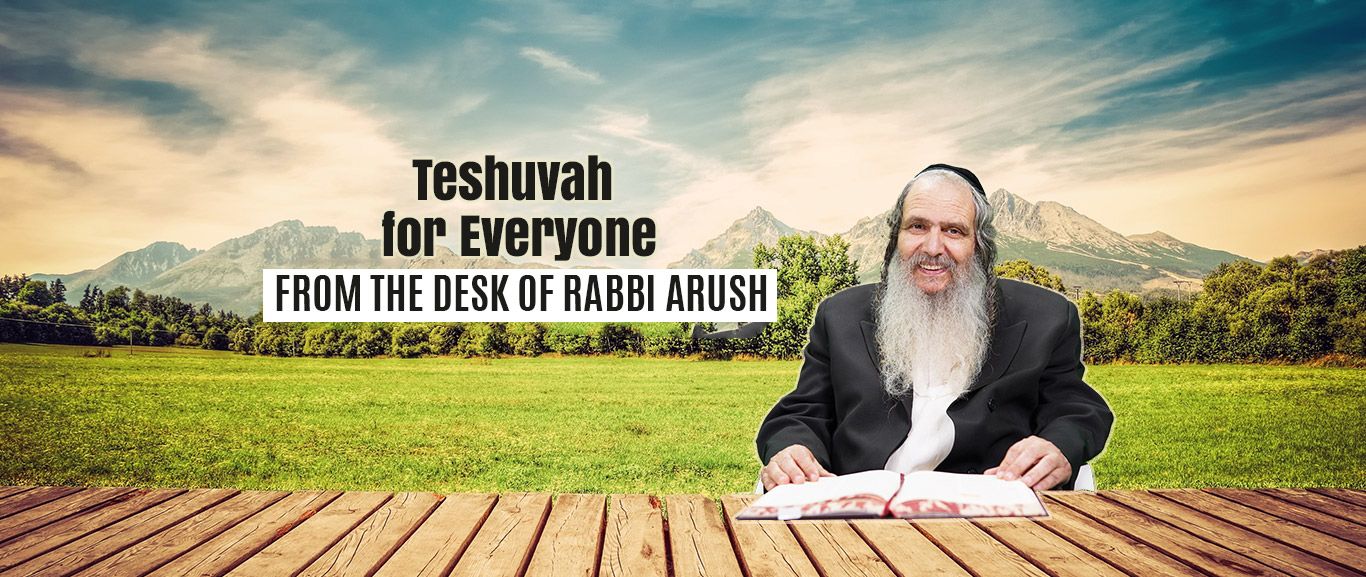
Teshuvah for Everyone
As Rosh Hashanah, the Day of Judgment, comes closer, we need a lot of encouragement to steady the course of teshuvah and continue forward. A MUST READ from Rabbi Arush.

Translated from Rabbi Arush’s feature article in the weekly Chut shel Chessed newsletter. The articles focus on his main message: “Loving others as yourself” and emuna.
Not in Jest
There is a saying that in every joke there is a grain of truth. In other words, the joke is based on a small core of truth, which is enlarged and exaggerated, and gift-wrapped in humor. And yet, it remains just a small part of the joke.
But there are those who say that it is the other way around: In every joke there is a small amount of humor, because the purpose of the joke is to present the pure truth; the truth is the main thing, but because it is so painful and so hard to discuss seriously – it is very difficult to face the truth – people use a bit of humor to sweeten the bitterness and to soften the message.
Rabbi Nachman was once at a wedding, and there was a comic – badchan – there, what would be known today as a standup comedian. He portrayed various figures: one moment he was a Chassidic Rebbe, and the next moment he had changed clothes and became a priest, lehavdil.
Rabbeinu understood immediately that this is not a joke, but rather a painful reality. He pointed out the extreme changes in the badchan, where one minute he looked like a Rebbe and a tzaddik, with an aura of holiness and the angel-like gestures of a true servant of Hashem; and immediately, a moment later, the same person looked like a genuine priest, with all the tum’a, heresies, and vulgarisms involved.
Rabbeinu identified the truth that lay at the root of this joke and said: “It is exactly like that with people – one moment they are angels, but suddenly they turn into priests.” In Yiddish it rhymes, because a priest in Yiddish is called a galach, and Rabbeinu said: “Sometimes malach (angel) and sometimes galach.”
In other words, the Rebbe understood that the show was not really a joke, but rather a mirroring of the simple reality of human beings in this world, always being torn between their yetzer tov and the yetzer ra. One moment you are on top of things, and you want to be the most righteous of the righteous, and a moment later the yetzer hara plunges you into the lowest of behaviors.
It Makes All the Difference
Is this familiar to you? You should know that it doesn’t happen only to you. It happens to everybody. The process of teshuvah (repentance) can be very frustrating. We all try and fail. We climb the ladder and then fall; one moment we aspire to greatness and the next we give up. Life is complicated and full of difficulties and trials. You manage to extricate yourself from one nisayon (test), and before you have recovered from it, a bigger nisayon comes and the ground underneath your feet becomes unsteady. Or you are going through a good period; you are moving forward and becoming elevated, and you think you’re on the right track, and suddenly you’re engulfed by a storm, and you plunge like a rock downward, the good times completely forgotten…
Everyone goes through this! EVERYONE!! With no exceptions!
Rabbeinu teaches us a novel idea: “And all the tzaddikim went through all of what we have said above!!” What you are going through, all these emotional travails, were experienced by all the tzaddikim. So why are there those who become tzaddikim, and those who fall all the way and stay on the bottom, without being able to rise again? What makes the difference?
The difference is in the hitchazkut (strengthening yourself, staunchness)!! – says Rabbi Natan. Because when facing such difficulties one needs a lot of self-strengthening, and every tzaddik earned his level only according to his level of staunchness.
What is staunchness? It is to continue to want in any situation! Never to lose the ratzon (the will, the desire), even when there is a fall and a down-sliding.
It is true that success does not always depend on you, and it is true that crises and crashing waves come upon you according to what the Creator of the World knows you must go through, and it is true that sometimes you don’t have the tools to handle things, and you think you are in an impossible situation – but!! – and it’s a very big but: There is one thing that is always in your hands!!
And this thing is the ratzon! The staunchness: to do the only thing that is always in your hands, which means to want and to want, no compromises allowed – to hold on to that ratzon of yours and not give up!
In the Mouth and Heart
That’s what this week’s parasha says, a parasha that is always read in preparation for Rosh Hashanah and the Aseret Yemei Teshuvah (Ten Days of Repentance, from Rosh Hashanah to Yom Kippur): “Because this mitzvah (the mitzvah of teshuva) that I am commanding you today, is not unattainable to you, neither is it distant. It is not in heaven… Nor is it beyond the sea…”1
Why does the Torah tell us that the mitzvah of teshuvah is not in heaven and not beyond the sea? Because there is indeed a possibility that we will think so. Often, we think that we have no chance, and we feel that the teshuvah is really something far away – “in heaven and beyond the sea.” We’ve tried so many times and have failed, and, repeatedly, we find ourselves in the same place, or even lower than before, and we must keep starting anew; and we feel this is not for us, it’s something “in the heaven” belonging to some special angels. That’s what all of us feel.
So, what is the solution? The Torah goes on to say: “This word is very close to you. It is in your mouth and in your heart for you to keep it.” When you want (in your heart) and pray (with your mouth), then everything is close to you, and nothing is impossible.
This is the way to do teshuva: the main point of teshuvah is connected to one’s ratzon! To want, to want, to want – in every situation – in other words, in your heart. And this is expressed in hitbodedut, in other words, in your mouth – by expressing your good ratzon verbally. And even if you fall, you don’t stop calling out to Hashem, praying, asking for help and revealing your positive ratzon.
The Building Blocks of Teshuvah
But Rabbi Natan – as only he knows how to do – adds so much depth. Listen well to these inspiring words:
Not only are the failures not just “accidents” on the way, but they are an inseparable part – and even the main part – of the journey! And therefore, it’s not that you must go on despite everything, but rather, particularly when faced with these difficulties! Because the most sublime time of teshuvah is when you continue to have your ratzon while sitting in darkness and after a fall, when you continue to want particularly when the Torah and teshuvah seem to be in heaven and beyond the sea!
Without a person having free choice – there would be no meaning to all his work. All the failures and the feelings of immense distance – that is precisely the point of choice; that is precisely the time when you must choose. How does one choose? With one’s ratzon. In your mouth and in your heart for you to keep it.
The deepest Torah, the greatest teshuvah – are revealed especially out of the darkness. “Because there are ways of Torah that can be acquired only by someone who can descend into the abyss,” says Rabbi Natan2. In other words, from the feeling of the greatest distance. He who knows how to want with all his strength while sitting in the abyss is truly close to the mitzvah of teshuvah – he is the one being addressed and told “This word is very close to you”!
That is our preparation for the day of judgment, for Rosh Hashanah. Many give up before they even try to make any change in their lives and do teshuva, because they say to themselves: “I’ve tried so many times and in the end I failed.” But when one knows the secret of teshuva, which is the secret of the ratzon – one isn’t afraid of falling, because one knows that the light of teshuvah can never be dimmed, and when one continues to want and pray and perform hitbodedut – every fall just elevates you and brings you closer and turns into a significant part of the process of teshuva.
May all Jews have a good, blessed year!
Editor’s Notes:
1 Devarim (Deuteronomy) 30:11
2 Likutei Halachot, “Kashering Utensils” 4, 24


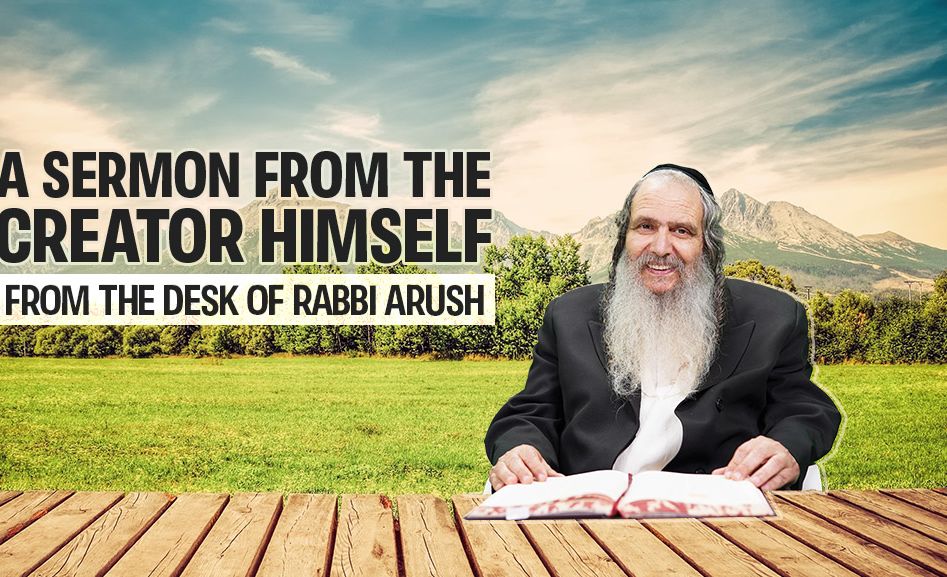

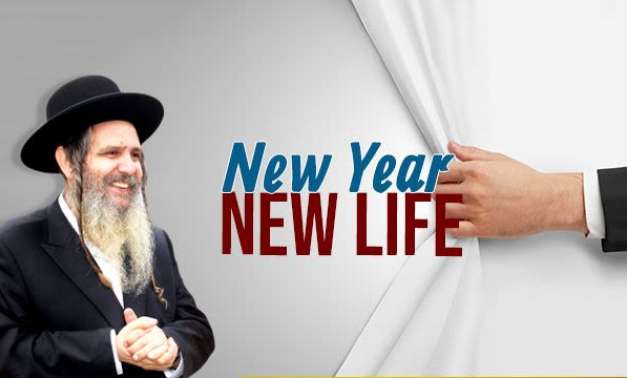
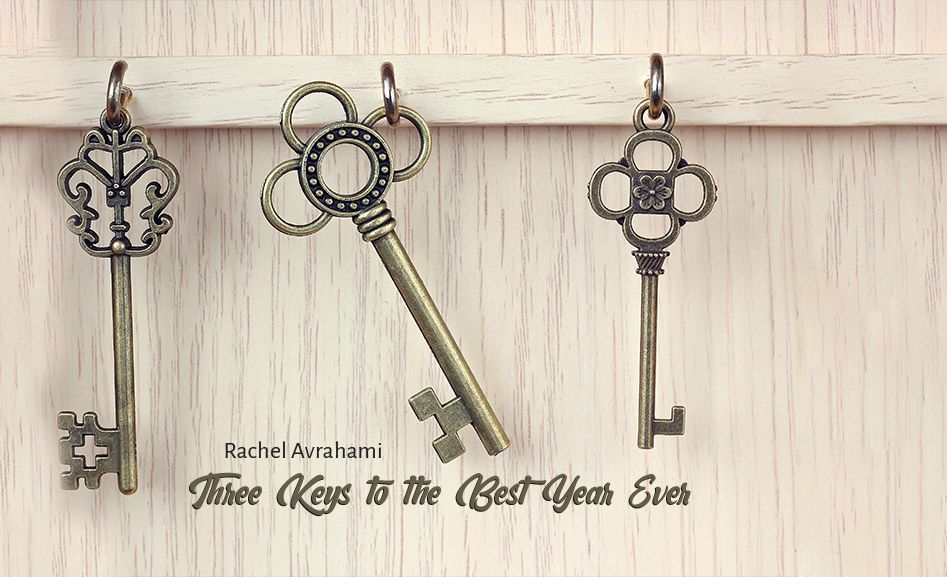

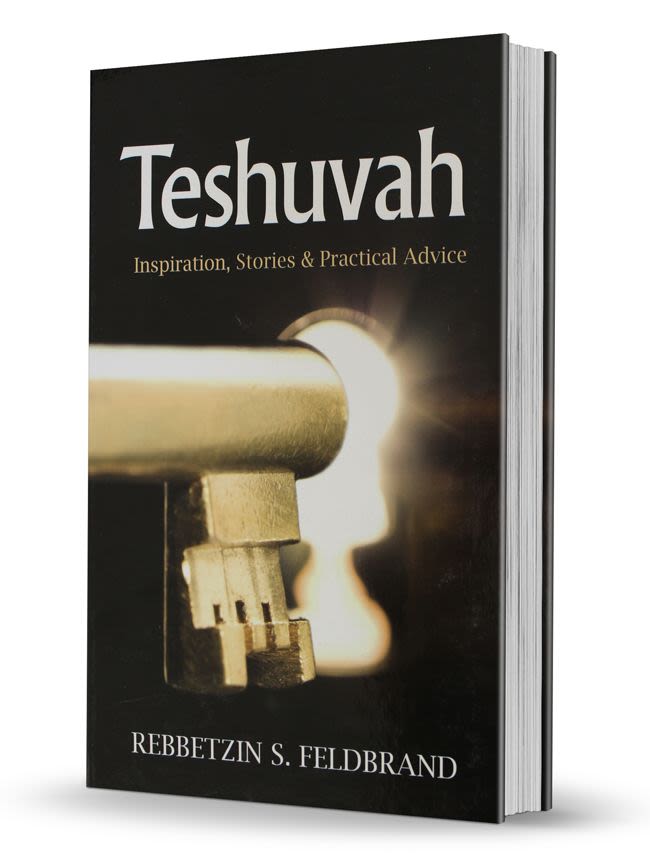
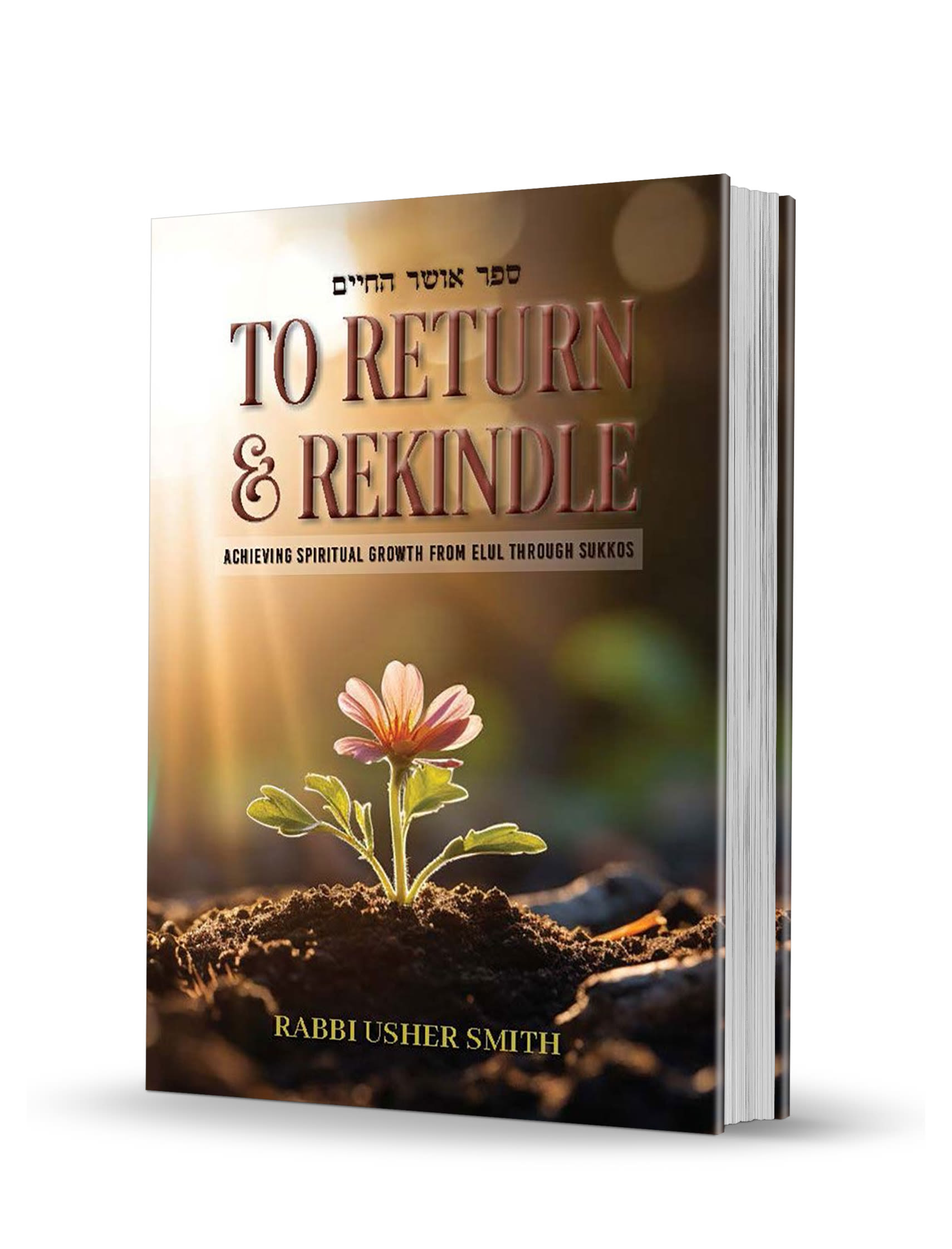
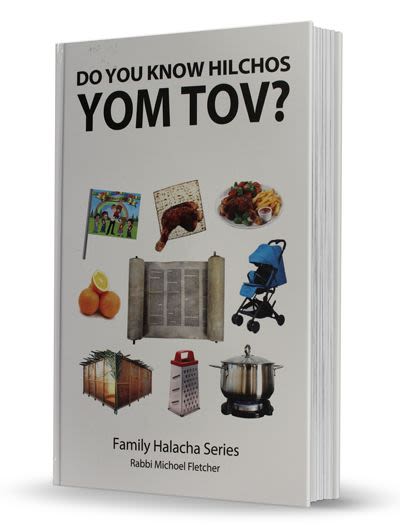
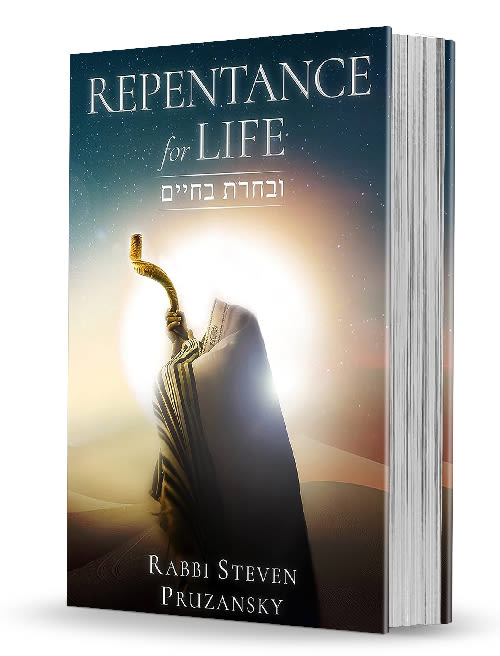
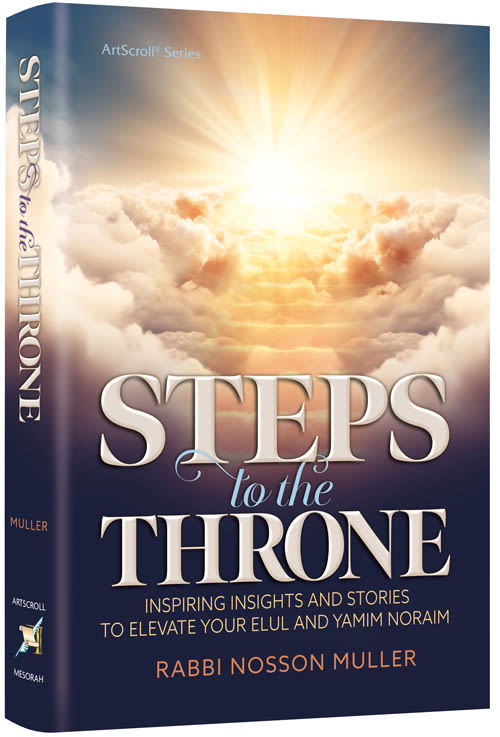
Tell us what you think!
Thank you for your comment!
It will be published after approval by the Editor.